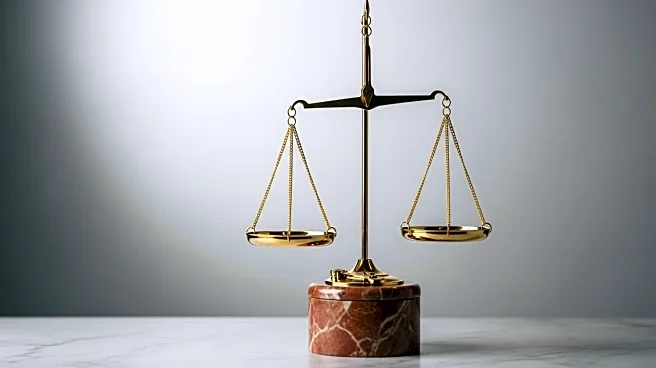What's Happening?
Stephen Miran, President Trump's nominee for the Federal Reserve Board, has declined to commit to resigning from his role as a top White House economic adviser if his term at the Fed extends beyond January. This decision has sparked concerns among Democratic lawmakers and Fed observers about the potential erosion of the central bank's independence. Miran, who chairs the Council of Economic Advisers, indicated he would take unpaid leave from his White House position while serving at the Fed but did not pledge to resign outright if his term extends. This stance contradicts his previous criticism of the revolving door between the Fed and the executive branch, where he advocated for insulating Fed board members from political influence.
Why It's Important?
The nomination of Stephen Miran to the Federal Reserve Board is significant as it could impact the perceived independence of the Fed, a cornerstone of its ability to manage monetary policy effectively. Critics argue that Miran's dual role could undermine market confidence in the Fed's commitment to combating inflation, as presidents typically favor lower interest rates to stimulate economic growth. This situation raises questions about the Fed's political ties and its ability to operate independently of the White House. The potential influence of President Trump's economic agenda on the Fed's decisions could have far-reaching implications for U.S. economic policy and investor confidence.
What's Next?
The Senate Banking Committee is scheduled to vote on Miran's nomination, potentially advancing him to consideration by the full Senate. If confirmed, Miran could be seated on the Fed board before its upcoming policy meeting, where investors expect further rate cuts to address a weakening labor market. The confirmation process will be closely watched, as it may set a precedent for future nominations and the relationship between the Fed and the executive branch. Democratic lawmakers have expressed concerns, but Republican support for Miran's nomination appears strong, suggesting a likely confirmation.
Beyond the Headlines
Miran's nomination highlights broader ethical and governance issues regarding the separation of powers between the executive branch and independent agencies like the Federal Reserve. The situation underscores the importance of maintaining institutional integrity and the potential risks of political influence on economic policy. Long-term, this development could lead to discussions about reforming the nomination process for Fed board members to ensure their independence and protect the central bank's credibility.









